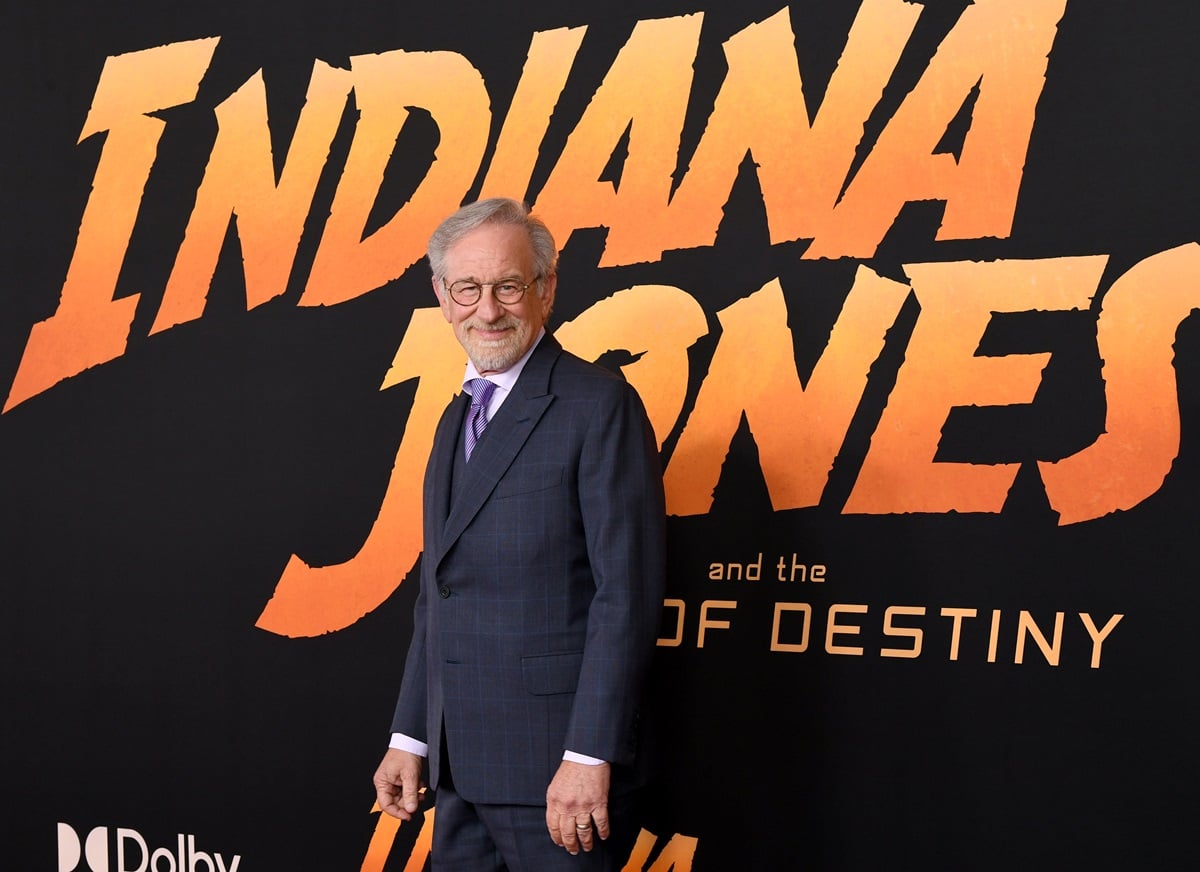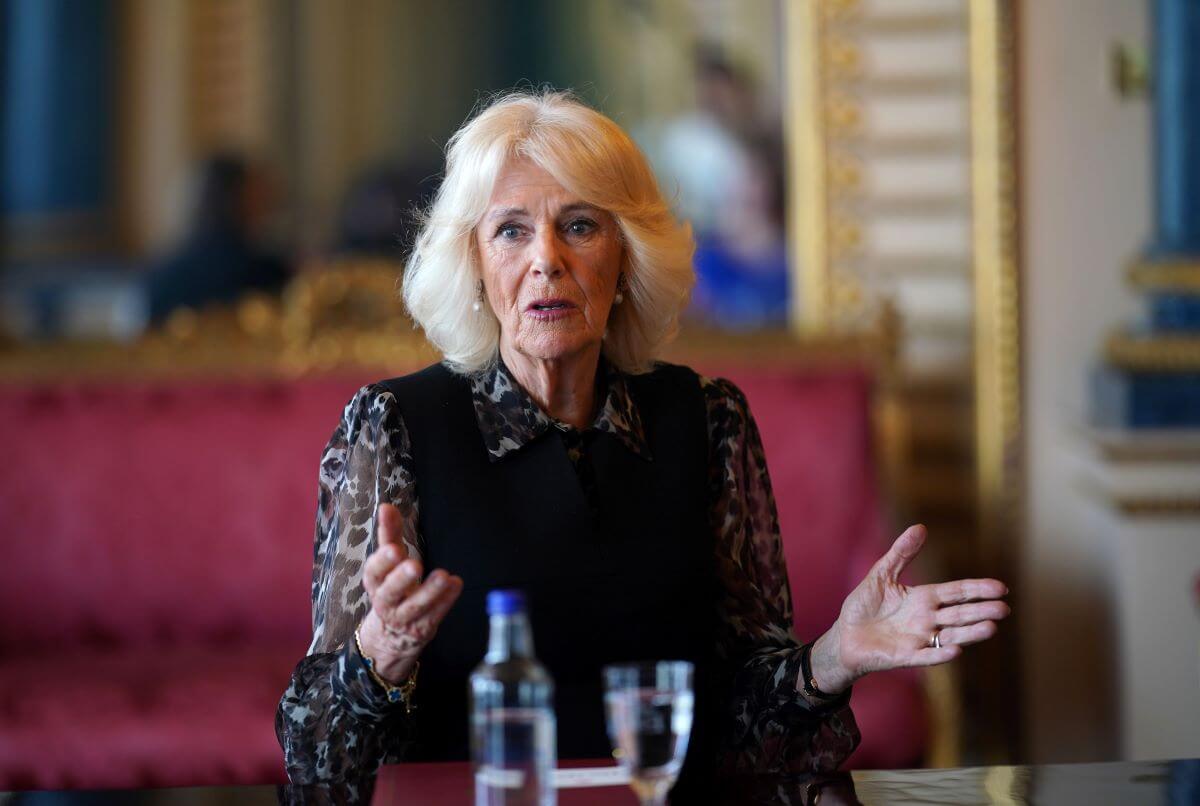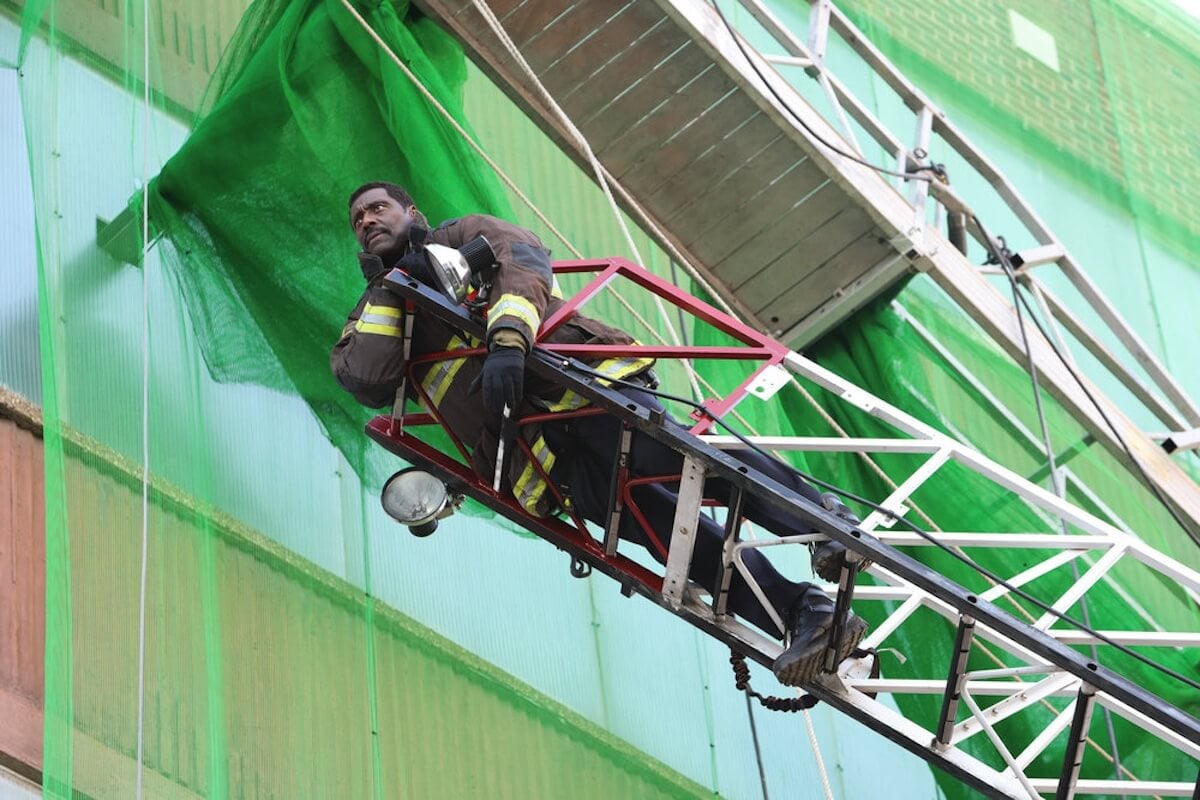
Why The Beatles Believed Someone Tried to Assassinate Them During a Performance
By the mid-1960s, The Beatles were sick of their schedule of live performances. They were exhausted by travel, schemes to dodge over-enthusiastic fans, and, on the darker end, death threats. The band had unprecedented popularity and success, but some were beginning to turn against them. At one performance in Memphis, they experienced a moment of fear when they believed someone had followed through on the threats against them.
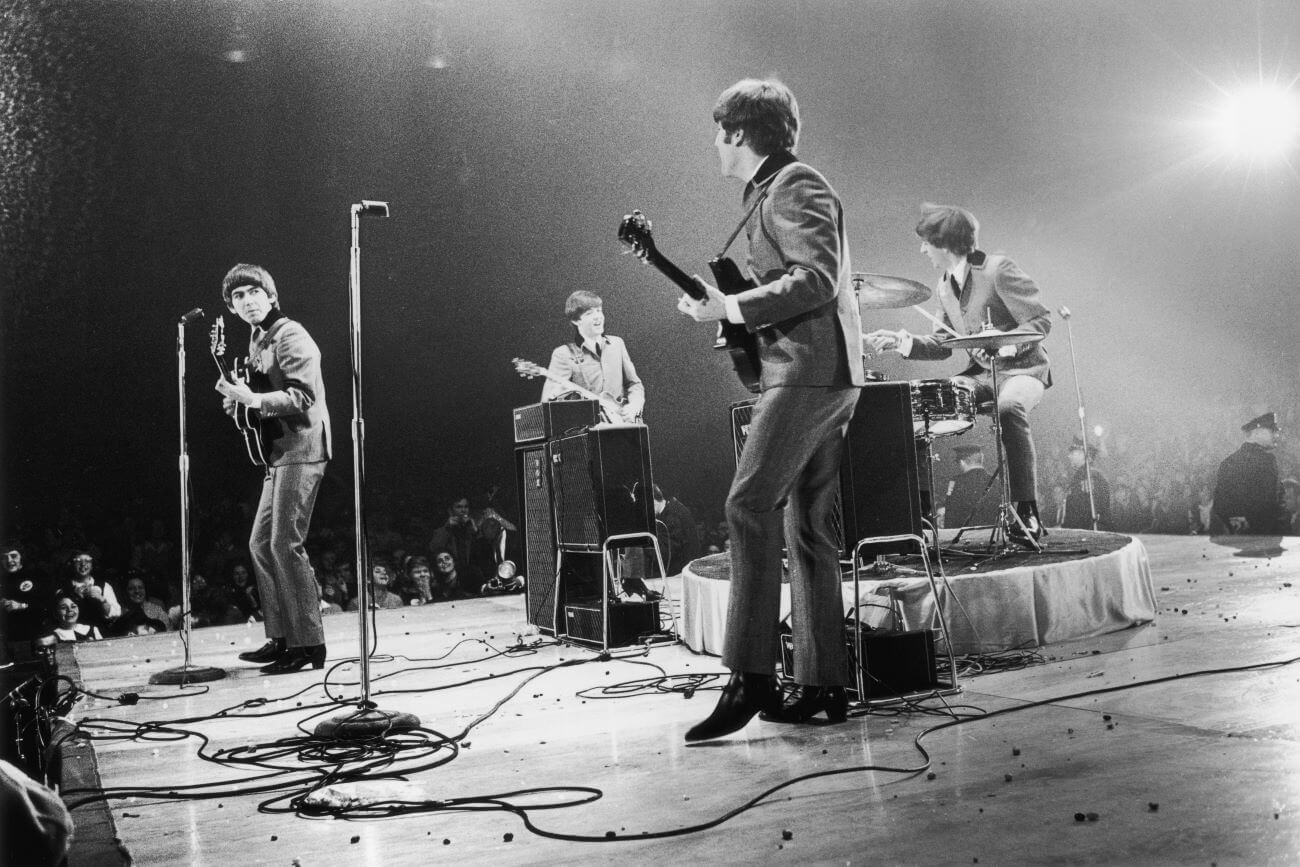
The Beatles worried that someone attacked them during a performance
When The Beatles went out in public for much of the 1960s, they had to avoid hoards of dedicated fans. Crowds swarmed them, blocking their escape from venues and, often, leaving them confined to their hotels.
The negative attention on them was more frightening. In 1966, John Lennon’s comment about The Beatles being more popular than Jesus surfaced. People boycotted the band and made death threats. The band considered canceling a concert in Memphis because of threats by the Ku Klux Klan.
“We thought we could actually pull out of one concert in the South, in Memphis — and in Memphis there was film of a guy from the Ku Klux Klan with his shades on, saying, ‘We have ways of dealing with this…'” George Harrison said in The Beatles Anthology. “But apparently the members of the Klan who were outside the stadium got chased away by the fans. So although we were feeling quite frightened (I remember sitting in a little minibus on the way to the gig, feeling a bit scared) we did the show.”
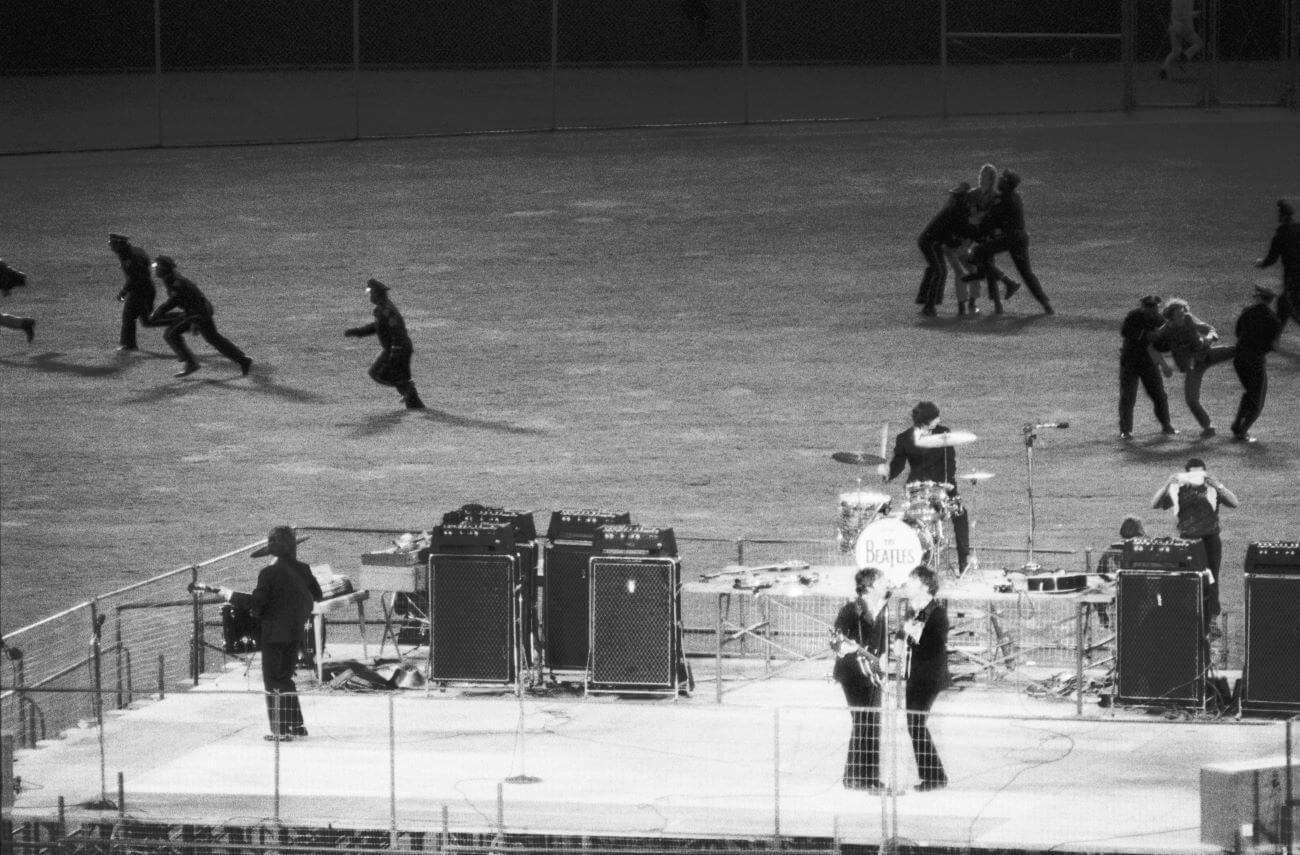
According to road manager Neil Aspinall, the threats felt more ominous at the Memphis show than they ever had before. To make matters worse, someone threw a firecracker onstage during the concert. The band believed that someone had fired a gun at them.
“One night on a show in the South somewhere [Memphis] somebody let off a firecracker while we were on stage,” Lennon said. “There had been threats to shoot us, the Klan were burning Beatle records outside and a lot of the crew-cut kids were joining in with them. Somebody let off a firecracker and every one of us — I think it’s on film — look at each other, because each thought it was the other that had been shot. It was that bad.”
The Beatles were right to worry about their safety during performances
While no one followed through on these threats as the band performed, The Beatles were right to feel uneasy. They had received a number of death threats over the years and played in spite of them. The only show they canceled was for rain, not threats of violence.
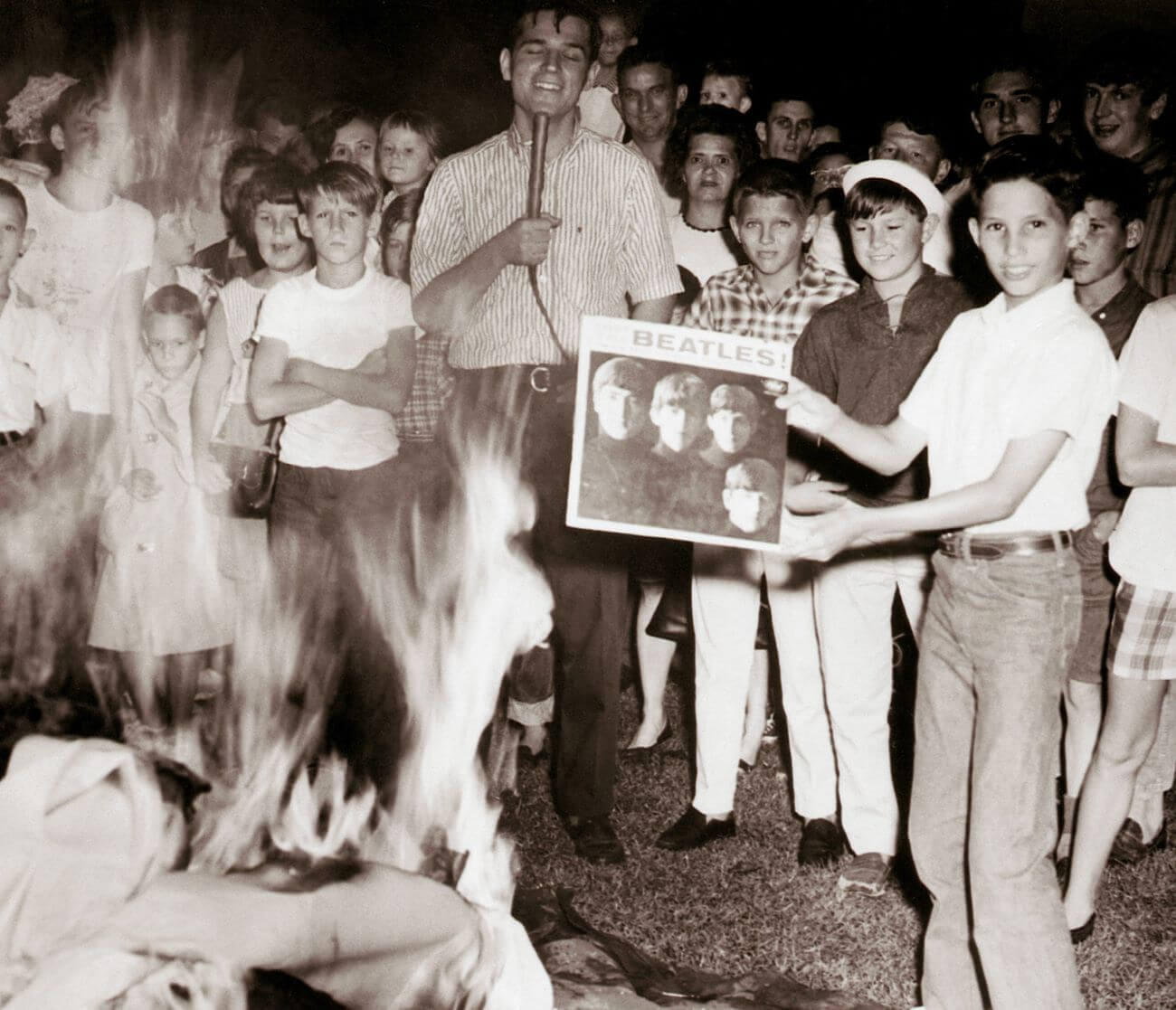
Beyond that, though, overenthusiastic fans posed a certain level of risk. They attempted to swarm the stage; at one of their final shows, The Beatles virtually played inside a cage to block this from happening. While they didn’t mean harm, the crush of people was enough to damage vehicles. They could easily have been injured if they had been caught up in a crowd. Their decision to stop touring in 1966 came at the right time.
The band decided to stop touring in 1966
After a series of unpleasant concerts, The Beatles decided to stop live performances. Paul McCartney had been the last band member pushing for them to tour. After a particularly rainy show and a getaway in the back of a van, even he’d had enough.
“I remember us getting in a big empty steel-lined wagon, like a removal van,” McCartney said. “There was no furniture in there – nothing. We were sliding around trying to hold on to something, and at that moment everyone said, ‘Oh, this bloody touring lark – I’ve had it up to here, man.'”
They played their final show at Candlestick Park in San Francisco on Aug. 29, 1966.
